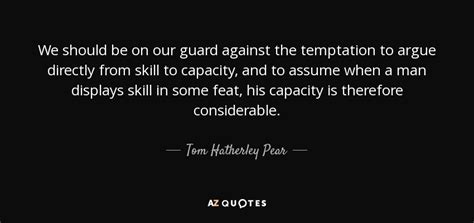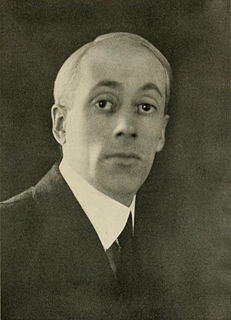A Quote by J. William Fulbright
Educational exchange can turn nations into people, contributing as no other form of communication can to the humanizing of international relations. Man's capacity for decent behavior seems to vary directly with his perception of others as individual humans with human motives and feelings, whereas his capacity for barbarism seems related to his perception of an adversary in abstract terms, as the embodiment, that is, of some evil design or ideology.
Quote Topics
Abstract
Adversary
Barbarism
Behavior
Capacity
Communication
Contributing
Decent
Design
Directly
Educational
Embodiment
Evil
Exchange
Feelings
Form
His
Human
Humans
Ideology
Individual
International
International Relations
Man
Motives
Nations
Other
Others
People
Perception
Perception Of Others
Related
Relations
Seems
Some
Terms
Turn
Vary
Whereas
Related Quotes
I know Donald Trump quite well. We've never shared values, he and I. But I respected his ability to turn it around. So I respect somebody who can turn things around and be successful. I think the president's communication style is the most difficult thing because he actually does care, people who know him know he cares. But his style of communication, his combative approach, the elements of ego that are obviously there in all of us but seem to be more easy to see in the president sometimes than other people, get in the way of his capacity to lead, unfortunately.
Man's knowledge of science has clearly outstripped his knowledge of man. Our only hope of making the atom servant rather than master lies in education, in a broad liberal education where each student within his capacity can free himself from trammels of dogmatic prejudice and apply his educational accoutrement to besetting social and human problems.
International educational exchange is the most significant current project designed to continue the process of humanizing mankind to the point, we would hope, that men can learn to live in peace-eventually even to cooperate in constructive activities rather than compete in a mindless contest of mutual destruction....We must try to expand the boundaries of human wisdom, empathy and perception, and there is no way of doing that except through education.
Ronald Reagan was notably able to avoid having personal considerations dissuade him from taking decisive actions. This may have arisen in part from his career in motion pictures; it may be related to his being a bit of a loner; it may have related to his focus on those people and principles he sought to serve. What is clear is that this capacity enhanced his effectiveness. It was also a surprise to many people.
His (Lenin's)humanitarianism was a very abstract passion. It embraced humanity in general but he seems to have had little love for, or even interest in, humanity in particular. He saw the people with whom he dealt, his comrades, not as individuals but as receptacles for his ideas. On that basis, and no other, they were judged. He judged man not by their moral qualities but by their views, or rather the degree to which they accepted his.
































